redefining what’s possible
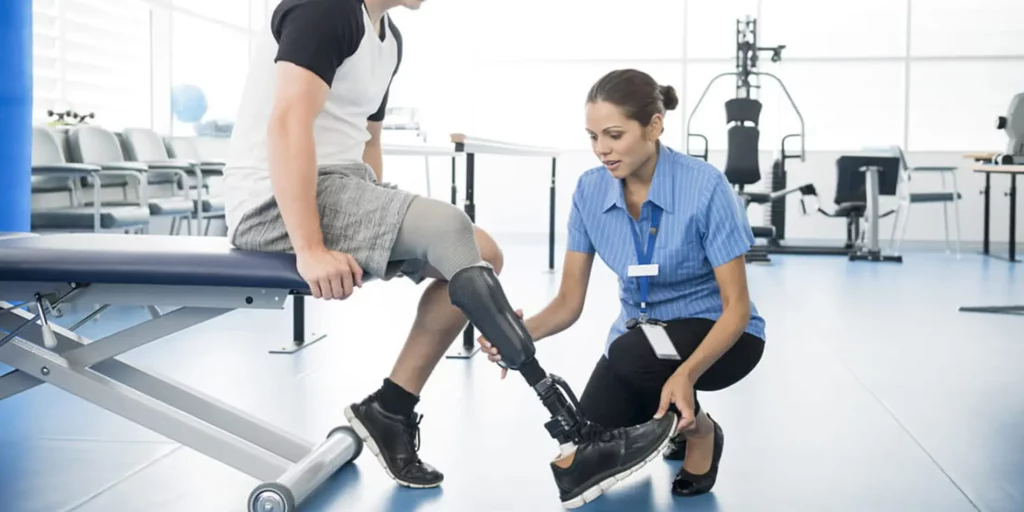
Northeastern University Physical Therapy graduates are innovative, global leaders who excel in clinical practice, research, and community service. As one of the longest accredited Physical Therapy Programs in the United States, and the only program with Cooperative Education, our students graduate with exceptional clinical decision-making skills, and experience in the field of physical therapy.
The Postbaccalaureate Doctor of Physical Therapy (DPT) program is designed for individuals who hold a minimum of a baccalaureate degree in any major other than physical therapy and have satisfied the prerequisite requirements.
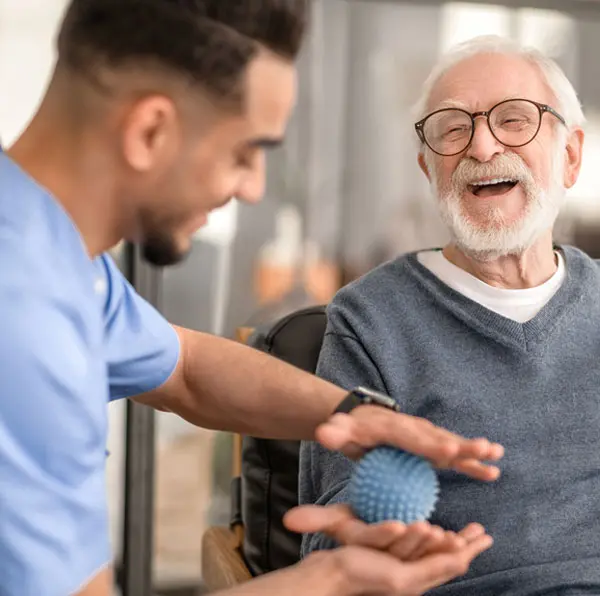

A hallmark of our program is experiential learning and we offer students a variety of educational opportunities including:
Embedded within our 38-month program is a unique and valuable cooperative (co-op) education experience, a six-month paid work opportunity in a physical therapy setting.
Students participate in several simulated patient encounters with people living in the community, representing a variety of health conditions, as well as standardized patients in our interprofessional, state-of-the-art high-fidelity simulation center.
Our DPT program builds on the university’s core values of interdisciplinary education, urban engagement, and cutting-edge research. Our exceptional faculty and staff are dedicated to promoting excellence in interprofessional practice, education, scholarship, and service.
Degree type:
– Doctor of Physical Therapy
– Accredited by CAPTE
Study options:
– On ground (Boston Campus)
– Full-time
Application deadlines:
Nov 15
Cost:
Financial Fact Sheet
Learn more about fees and tuition
GRE: Not required
F1 Eligible: Yes
Dr. Pamela Donlan
Interim Program Director
Over the course of three years, this rigorous curriculum provides didactic and experiential learning experiences, the cornerstone of our program. These experiences include cooperative education, simulated patient interactions, interprofessional education, human cadaver lab, engagement with consumer clients, service-learning, clinical research, and integrated and full-time clinical education experiences.
All students in the DPT program at Northeastern University gain valuable research education through multiple courses culminating in participation in research with a faculty mentor and presentation at the annual NU Research and Innovation Exposition. Many students also disseminate research findings with faculty through scientific publications and professional conferences.
The physical therapy program at Northeastern University is accredited by the Commission on Accreditation in Physical Therapy Education (CAPTE), 3030 Potomac Ave., Suite 100, Alexandria, Virginia 22305-3085; telephone: 703-706-3245; email: [email protected]; website: http://www.capteonline.org. If needing to contact the program/institution directly, please call 617-373-3748 or email [email protected].
If you wish to file a formal complaint regarding this program, CAPTE has a mechanism to do so via this page: https://www.capteonline.org/complaints
View the 2023-2024 DPT Financial Fact Sheet.
APTA Contact Information
3030 Potomac Ave., Suite 100
Alexandria, Virginia 22305-3085
Tel: 703-706-3245
| Graduation Rate | Employment Rate | First Time NPTE Pass Rate | Overall Pass Rate | |
| Class of 2023 | 100% | 92% | 81.4% | 87% |
| Class of 2022 | 99% | 92.1% | 85% | 91% |
| Class of 2021 | 98% | 100% | 87% | 93% |
| Class of 2020 | 98% | 93.7% | 94% | 98% |
| 2-Year Graduation Rate | 2-Year Employment Rate | 2-Year Overall License Pass Rate | |
| 2022 – 23 | 99.5% | 92% | 89% |
| 2021 – 22 | 98.5% | 96% | 92% |
Prospective students of the Post Baccalaureate Doctor of Physical Therapy [PB-DPT] program must have or will have completed a bachelor’s degree from an accredited college or university prior to anticipated enrollment in the DPT program. The Admissions Committee welcomes applications from scholars of diverse educational backgrounds. Decisions are based on the individual applicant’s academic qualifications and potential.
All science prerequisites with the exception of Exercise Physiology MUST be taken with a co-requisite lab. Please note that online labs are no longer accepted.
Satisfactory completion – within 7 years of all science courses is required:
Satisfactory completion within 10 years of the following prerequisites:
A minimum of forty [40] observation/volunteer hours in a Physical Therapy facility is required. Please note observation hours on your CV. ALL components of the application to the PB-DPT program MUST be received by the noted deadline in order for prospective students to be considered for acceptance into the program.
Minimum overall GPA of 3.0
Minimum overall science GPA of 3.0
Three letters of recommendation (academic and professional)
Curriculum vitae
A non-physical therapy baccalaureate degree from an accredited USA program, or an international baccalaureate degree with English proficiency scores (IELTS/TOEFL) included.
Statement of purpose
Official transcript from baccalaureate program and all college coursework
Disclaimer: Although prerequisite requirements may be in progress at the time of application, all must be completed prior to matriculation. Only those applications that have been fully completed and submitted prior to the deadline will be considered. Letters indicating the outcome of the application review (accepted, provisionally accepted, conditionally accepted, waitlisted or denied) will be disseminated within three months of the application deadline. Prospective students are given three weeks to enroll in the PB-DPT program that will commence in the summer semester of the subsequent year. Applications of those placed on the “Wait List” are ranked and these applicants are offered a seat in the class to which they have applied pending any changes in the PB-DPT cohort.
Please reach out to:
Christopher Cesario, PT, DPT, MBA
Director of Student Affairs
Associate Clinical Professor
Department of Physical Therapy, Movement and Rehabilitation Sciences
301F Robinson Hall
Northeastern University
Boston, MA 02115-5000
617-373-5536
We offer a direct guaranteed acceptance* for Northeastern undergraduate students interested in continuing their studies in the DPT program. You can work with your academic advisor to complete the required prerequisite coursework. You may also be able to participate in physical therapy-related experiential cooperative education which will give you physical-therapy experience prior to enrolling.
As a Northeastern undergraduate student, you may also be able to take advantage of the Double Husky Scholarship when enrolling in the DPT program, which offers a 25% tuition discount. If you have questions, please reach out to Dr. Chris Cesario, Director of Student Affairs in the Department of Physical Therapy.
*For guaranteed acceptance, students must maintain a 3.2 cumulative and prerequisite science GPA, complete the required prerequisite coursework and submit a resume, transcript, letter of reference and a personal statement.
Double Husky Scholarship — Graduate Programs
The Double Husky Scholarship helps Northeastern alumni finance their graduate education by offering a 25% tuition discount on more than 110 programs.
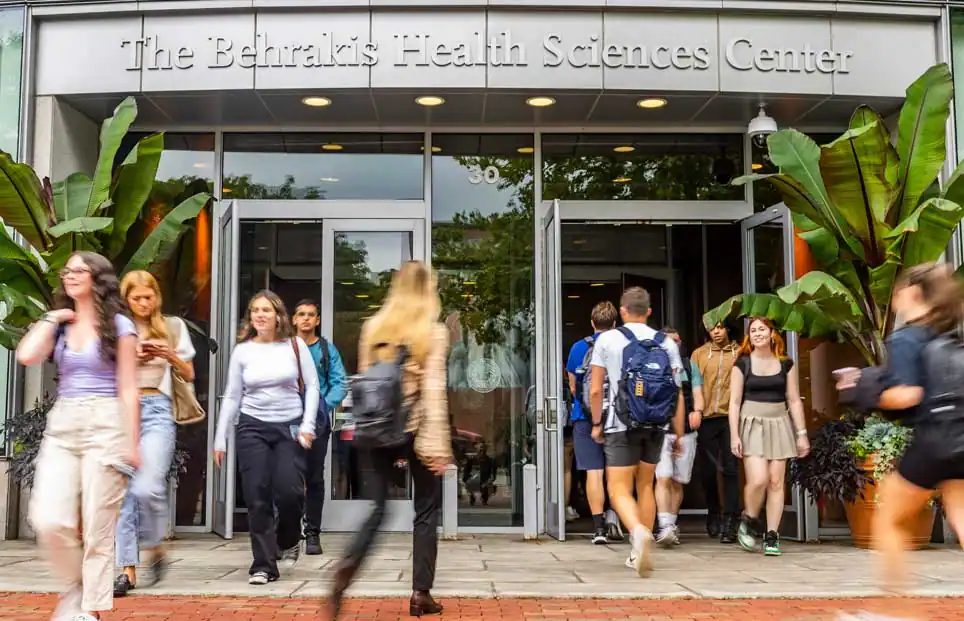
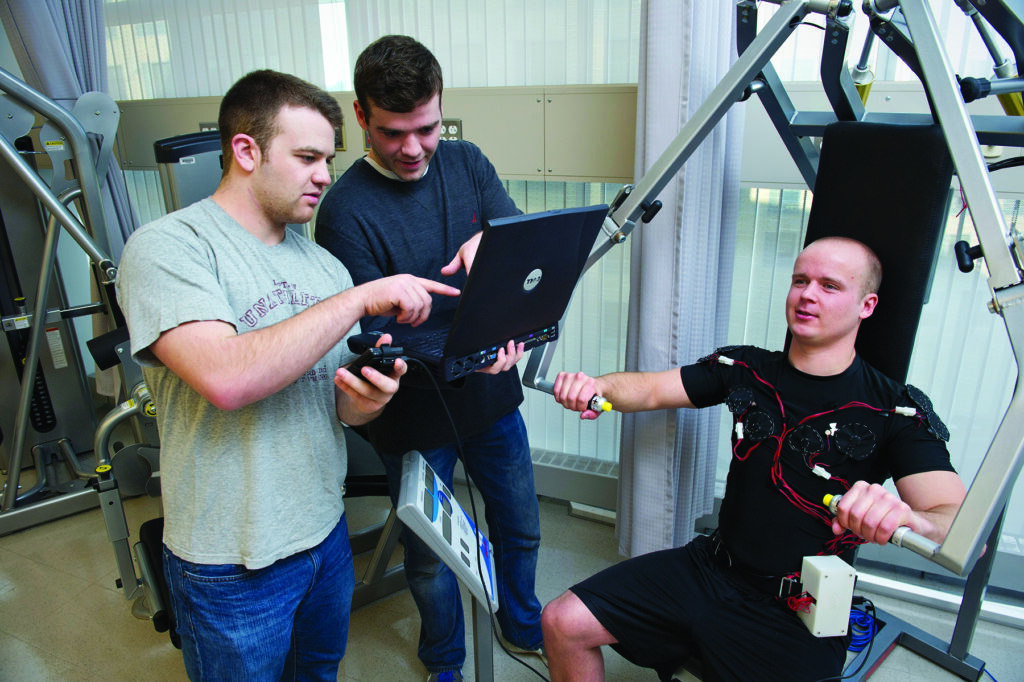
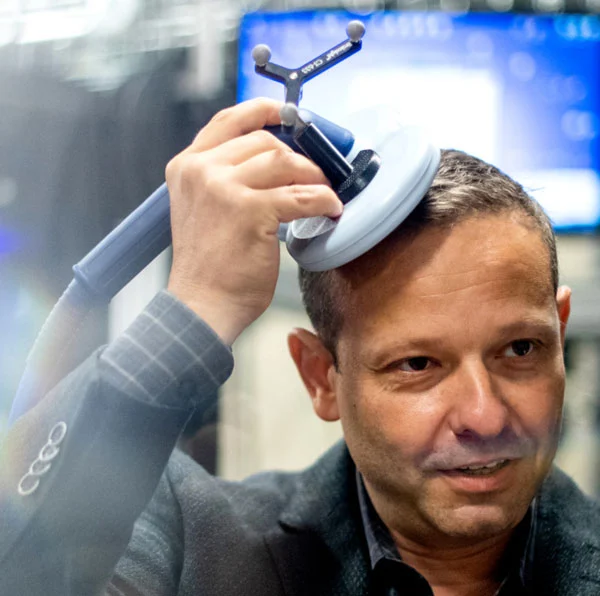
Learning extends beyond the classroom at Northeastern. Providing students with opportunities for experiential education that links coursework with the real world is central to the mission both of the University and the Bouvé College of Health Sciences. Our broad mix of experience-based programs-includes; co-op, student research, clinical education, service learning, and global learning.
The PB-DPT program for graduate students is a full-time day school program. The only part time program offered at NU is through the College of Professional and Continuing Studies (CPS): the t-DPT program: a transitional DPT for individuals who are licensed physical therapists seeking the terminal clinical degree (DPT) but do not have a DPT.
Yes, the Physical Therapy program has been fully accredited since 1930.
Our PB-DPT program begins in the Summer II semester of each academic year (which starts in late June/early July).